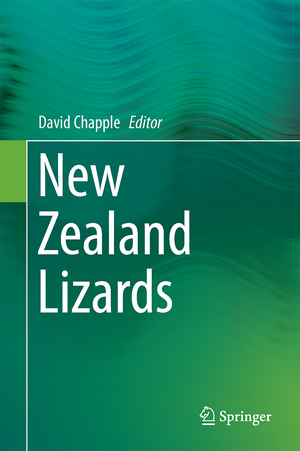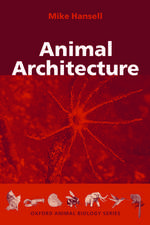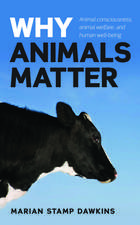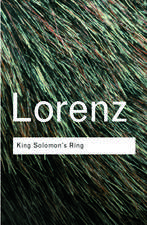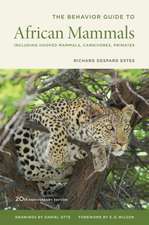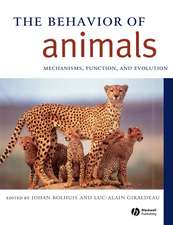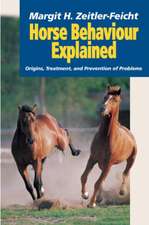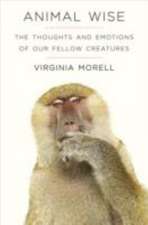New Zealand Lizards
Editat de David G. Chappleen Limba Engleză Hardback – 14 oct 2016
| Toate formatele și edițiile | Preț | Express |
|---|---|---|
| Paperback (1) | 1114.21 lei 6-8 săpt. | |
| Springer International Publishing – 16 iun 2018 | 1114.21 lei 6-8 săpt. | |
| Hardback (1) | 1340.24 lei 6-8 săpt. | |
| Springer International Publishing – 14 oct 2016 | 1340.24 lei 6-8 săpt. |
Preț: 1340.24 lei
Preț vechi: 1634.44 lei
-18% Nou
Puncte Express: 2010
Preț estimativ în valută:
256.54€ • 278.75$ • 215.63£
256.54€ • 278.75$ • 215.63£
Carte tipărită la comandă
Livrare economică 21 aprilie-05 mai
Preluare comenzi: 021 569.72.76
Specificații
ISBN-13: 9783319416724
ISBN-10: 3319416723
Pagini: 230
Ilustrații: XVI, 375 p. 48 illus., 31 illus. in color.
Dimensiuni: 155 x 235 x 28 mm
Greutate: 7.1 kg
Ediția:1st ed. 2016
Editura: Springer International Publishing
Colecția Springer
Locul publicării:Cham, Switzerland
ISBN-10: 3319416723
Pagini: 230
Ilustrații: XVI, 375 p. 48 illus., 31 illus. in color.
Dimensiuni: 155 x 235 x 28 mm
Greutate: 7.1 kg
Ediția:1st ed. 2016
Editura: Springer International Publishing
Colecția Springer
Locul publicării:Cham, Switzerland
Cuprins
Chapter 1: Introduction (David Chapple).- Chapter 2: New Zealand lizards: a historical perspective (Glenn Shea, University of Sydney, Australia).- Chapter 3: Fossil record of New Zealand lizards (Trevor Worthy, Flinders University, Australia).- Chapter 4: Taxonomy of New Zealand lizards (David Chapple and Rod Hitchmough, NZ Department of Conservation).- Chapter 5: Biogeography of New Zealand lizards (David Chapple and Rod Hitchmough).- Chapter 6: Ecology, diet and habitat use (David Chapple).- Chapter 7: Reproduction, life history and captive breeding (Alison Cree, University of Otago, NZ).- Chapter 8: Parasites, diseases and pathogens of New Zealand lizards (Brett Gartrell, Massey University, NZ).- Chapter 9: Physiology of New Zealand lizards (Alison Cree, and Kelly Hare, Victoria University of Wellington, NZ).- Chapter 10: Sampling techniques for New Zealand lizards (Marieke Lettink, Fauna Finders, Christchurch, NZ).- Chapter 11: Conservation of New Zealand lizards (Dave Towns, Auckland University of Technology/NZ Department of Conservation, and Rod Hitchmough).- Chapter 12: Translocations of New Zealand lizards (Dave Towns, and Kim Miller, University of Melbourne, Australia).- Chapter 13: Lizard conservation in mainland sanctuaries (Nicola Nelson, Victoria University of Wellington, New Zealand).- Chapter 14: The introduced rainbow skink in New Zealand (David Chapple, and Jo Peace, University of Auckland).- Chapter 15: Conclusions and future directions (David Chapple).
Recenzii
“In this comprehensive and authoritative volume, David Chapple and co-authors have compiled a fascinating overview of the New Zealand lizards. … the book excels and will provide a notable point of reference for both current and future reptile researchers. … this book would provide a useful additional resource for university taught courses in fields such as ecology, evolution and conservation. … I would definitely recommend the book in its entirety … .” (Oliver J. S. Tallowin, Frontiers of Biogeography, Vol. 9 (1), 2017)
Notă biografică
Dr David Chapple is a Senior Lecturer in the School of Biological Sciences at Monash University, Australia. He completed his PhD at the Australian National University on the evolutionary ecology and molecular phylogenetics of Liopholis skinks. Dr Chapple then moved to Victoria University of Wellington to complete an Allan Wilson Centre postdoctoral fellowship on the origin, evolution and biogeography of New Zealand lizards. He returned to Australia to take up an Australian Research Council postdoctoral fellowship at Museum Victoria on the invasion dynamics of the delicate skink; a research program that continues to this day. Dr Chapple has been an Associate Editor of both Conservation Genetics and the Journal of Herpetology, and is currently a guest editor for a special issue of Biological Conservation on reptile conservation. He is an expert assessor for the International Union for Conservation of Nature (IUCN) for New Zealand skinks, and has provided expert advice to a range of government and conservation agencies, including the Lord Howe Island Board, Zoos Victoria, and the New Zealand Department of Conservation. Dr Chapple’s research group investigates the evolutionary ecology of environmental change, using squamate reptiles as model systems in which to examine ecological and evolutionary processes.
Textul de pe ultima copertă
This edited volume is a timely and comprehensive summary of the New Zealand lizard fauna. Nestled in the south-west Pacific, New Zealand is a large archipelago that displays the faunal signatures of both its Gondwanan origins, and more recent oceanic island influences. New Zealand was one of the last countries on Earth to be discovered, and likewise, the full extent of the faunal diversity present within the archipelago is only just starting to be appreciated. This is no better exemplified than in lizards, where just 30 species (20 skinks, 10 geckos) were recognized in the 1950s, but now 104 are formally or informally recognized (61 skinks, 43 geckos). Thus, New Zealand contains one of the most diverse lizard faunas of any cool, temperate region on Earth. This book brings together the world’s leading experts in the field to produce an authoritative overview of the history, taxonomy, biogeography, ecology, life-history, physiology and conservation of New Zealand lizards.
Caracteristici
Provides complete overview on the New Zealand lizard fauna Brings together the world’s leading experts to produce an authoritative overview of the history, taxonomy, biogeography, ecology, life-history, and conservation of New Zealand lizards Broadens your understanding of one of the most diverse lizard fauna of any cool, temperate region on Earth
